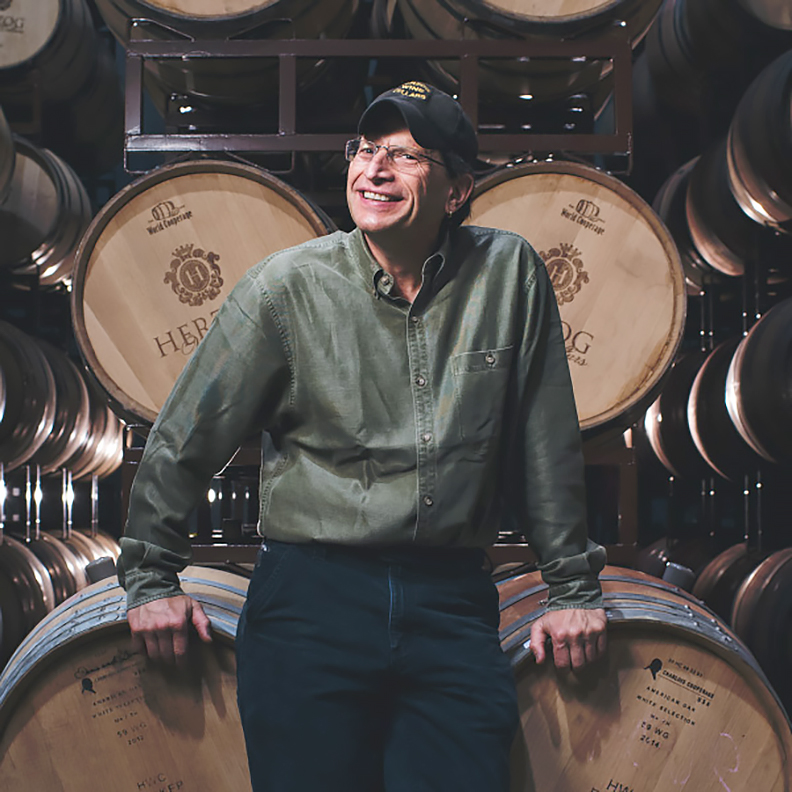Medium copper color; strawberry, melon, watermelon, pomegranate, tart cherry, raspberry, on the nose and palate.
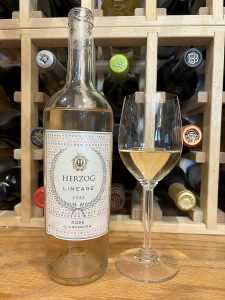
Dry; no tannins; bright, crisp. Field blend of various grapes—maybe up to a dozen varieties, but cabernet sauvignon likely is the major player—unusual for a rosé, but this works. Fruit forward. Most Herzog Lineage wines are single variety wines, usually from a specific vineyard. This is an exception and clearly intended to produce a quality easy drinker geared to light hearted, warm weather quaffing. It succeeds. The wine is mevushal and kosher for Passover—Herzog is a major U.S. maker of mevushal/kosher wines. 13.5% ABV
Herzog is important player in California wine. Their story begins in Slovakia in the 1800s. After making wine in Slovakia for 150 years, the family immigrated to the U.S. in 1948. Today, the seventh and eighth generations are winemakers. The “Lineage” on the label refers to this long family history.
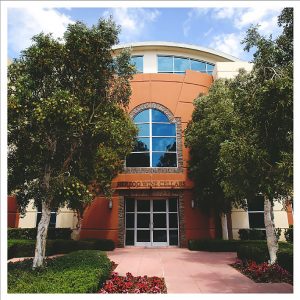
In the early 19th century, in the town of Vrbové in the Trnava Region of Slovakia, Rabbi Menachem Herzog created a distillery, winery, and brewery. Herzog winemakers in Austria-Hungary supplied wine to the court of Kaiser Franz Joseph, who gave son Phillip Herzog the title of baron. Then came fascism. Phillip’s grandson, Eugene Herzog survived the Nazis, but his parents did not, murdered in Auschwitz. With the rise of Communism after World War II, Eugene and his family immigrated to New York City. In 1948, Eugene began working for a local winery, the Royal Wine Company, as a winemaker, sales manager, and truck driver. By 1958, he owned the company.
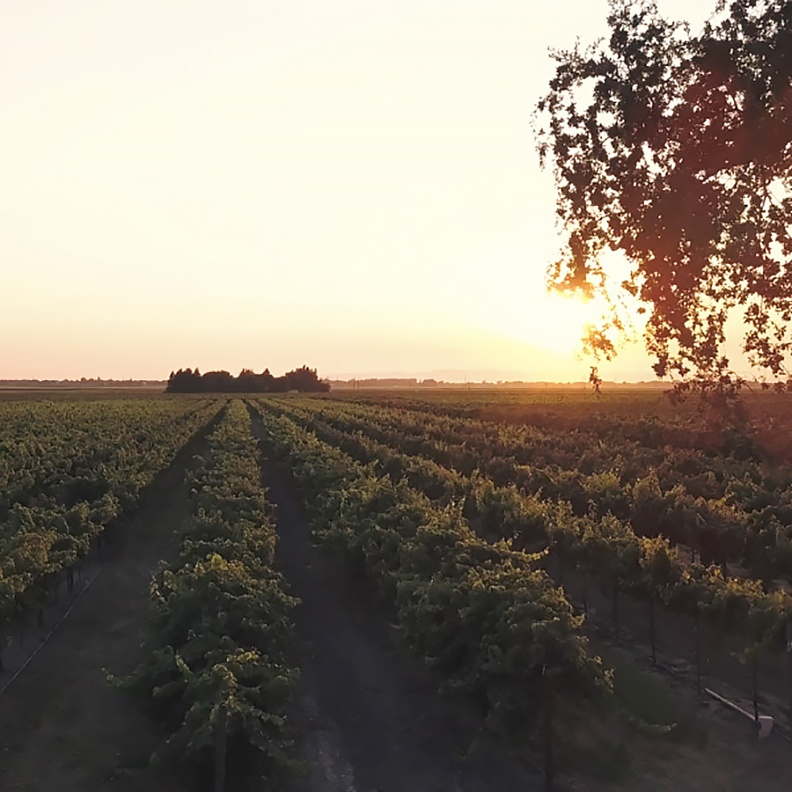
With the help of four sons, Eugene opened Kedem Winery and developed opulent wines under that label using Concord grapes. That engendered the American kosher wine industry. Kadem grape juice remains the top-selling kosher product in the United States.
As the family experienced success over the next quarter century, under the leadership of David Herzog, the family realized a dream of owning a California winery. They created the nation’s first premium kosher wine under the Baron Herzog label, a tribute to the family’s patriarch. After making wine at several places, the company built a state-of-the-art winery in Ventura, California. The company also began importing kosher wines and spirits from most major companies in the world—today, from more than 15 countries and five continents.
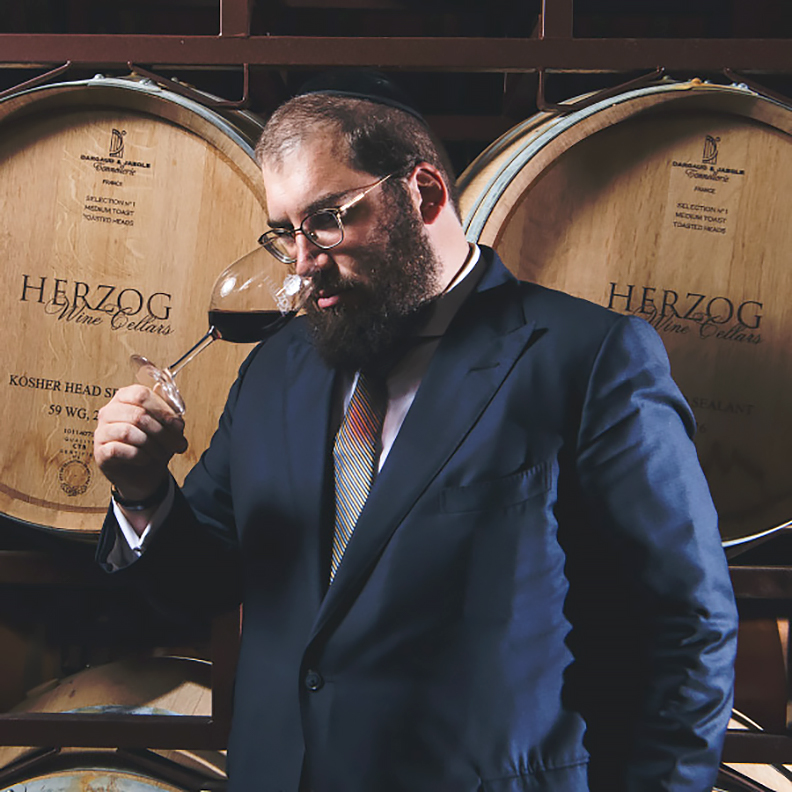
Joseph Herzog is a partner and vice president and the eighth generation of Herzog winemakers. He notes: “I believe we are all links in a chain. It’s my job, as the chain gets longer and longer, to make it strong enough to hold the weight. We need to be our best now in order to leave a company that the next generation can build upon.”
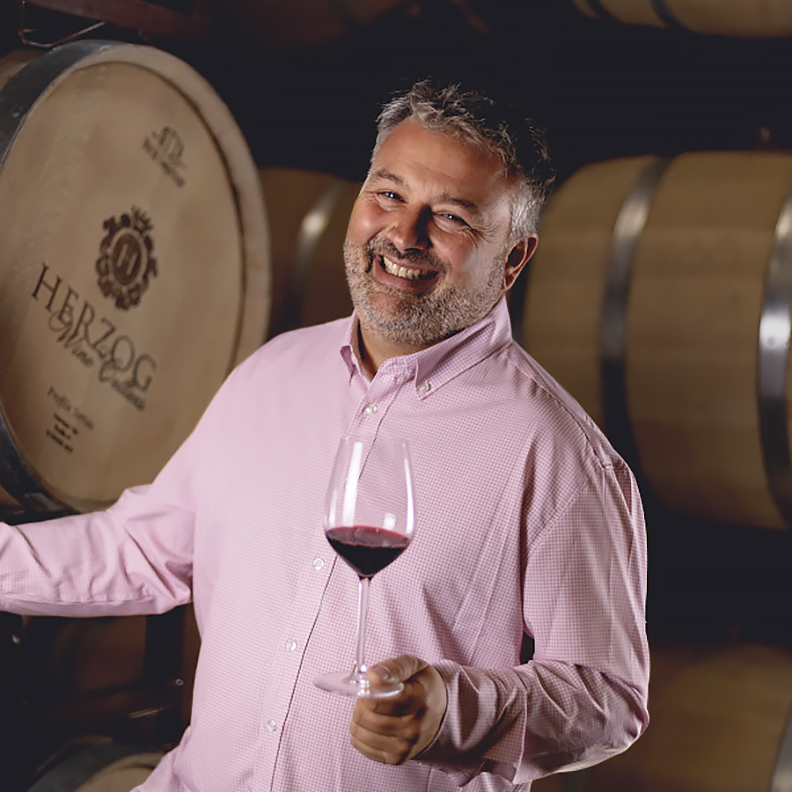
David Galzignato is the director of winemaking and operations. He has led winery teams at La Fracce Winery, Oltrepo Pavese in Italy, and wineries in Napa, Sonoma, Paso Robles, and Washington State. He notes: “I have a tremendous amount of respect for the 150-year history of Herzog Cellars. I’m excited to work closely with the team focusing on sustainable farming and winemaking priorities, as well continuing to work with some of the best vineyards in both Napa and Sonoma.”
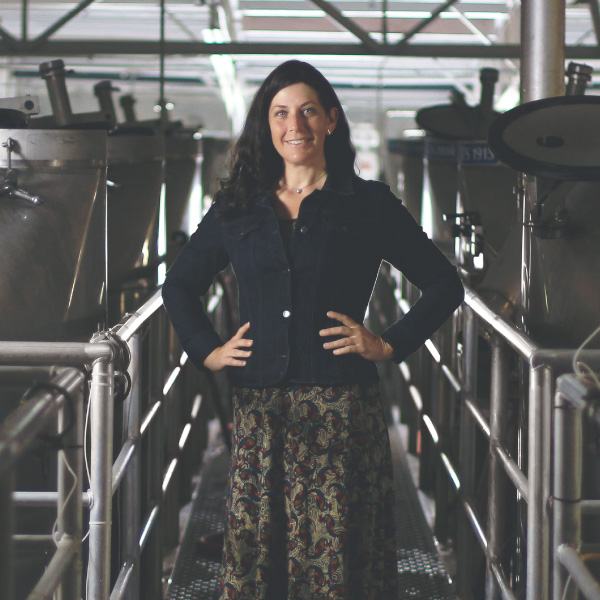
Alicia Wilbur is the production winemaker. She earned formal wine training at Fresno State University and is a certified sommelier from the Court of Master Sommeliers. According to the website, Alicia’s life goal was “to be part of one of the largest and most prestigious kosher winemaking operations in the world. She jumped at the chance, joining Herzog as an enologist in 2013 and moving to Assistant Winemaker in 2016.” She is the production winemaker today. Herzog Wine Cellars winemaker emeritus Joe Hurliman played a central role in the company’s move to California and construction of the winery; he remains involved today.
Herzog Wine Cellars Lineage Rosé, Clarksburg 2022 is an easy-going, pleasant delight. A perfect warm weather sipper with lighter food or just enjoyed by itself poolside, patio, picnic. Mevushal and kosher for Passover. Works as an aperitif and with appetizers and snacks. Pair with lemon herb chicken; salmon, tuna, lighter fish; shrimp and shellfish; pork; pasta with tomato sauces; roasted vegetables; vegetarian fare; summer salads. Cheese—brie, goat cheeses, camembert, mild cheddar, fontina, gouda, mozzarella, sheep’s milk cheese. $17-22
